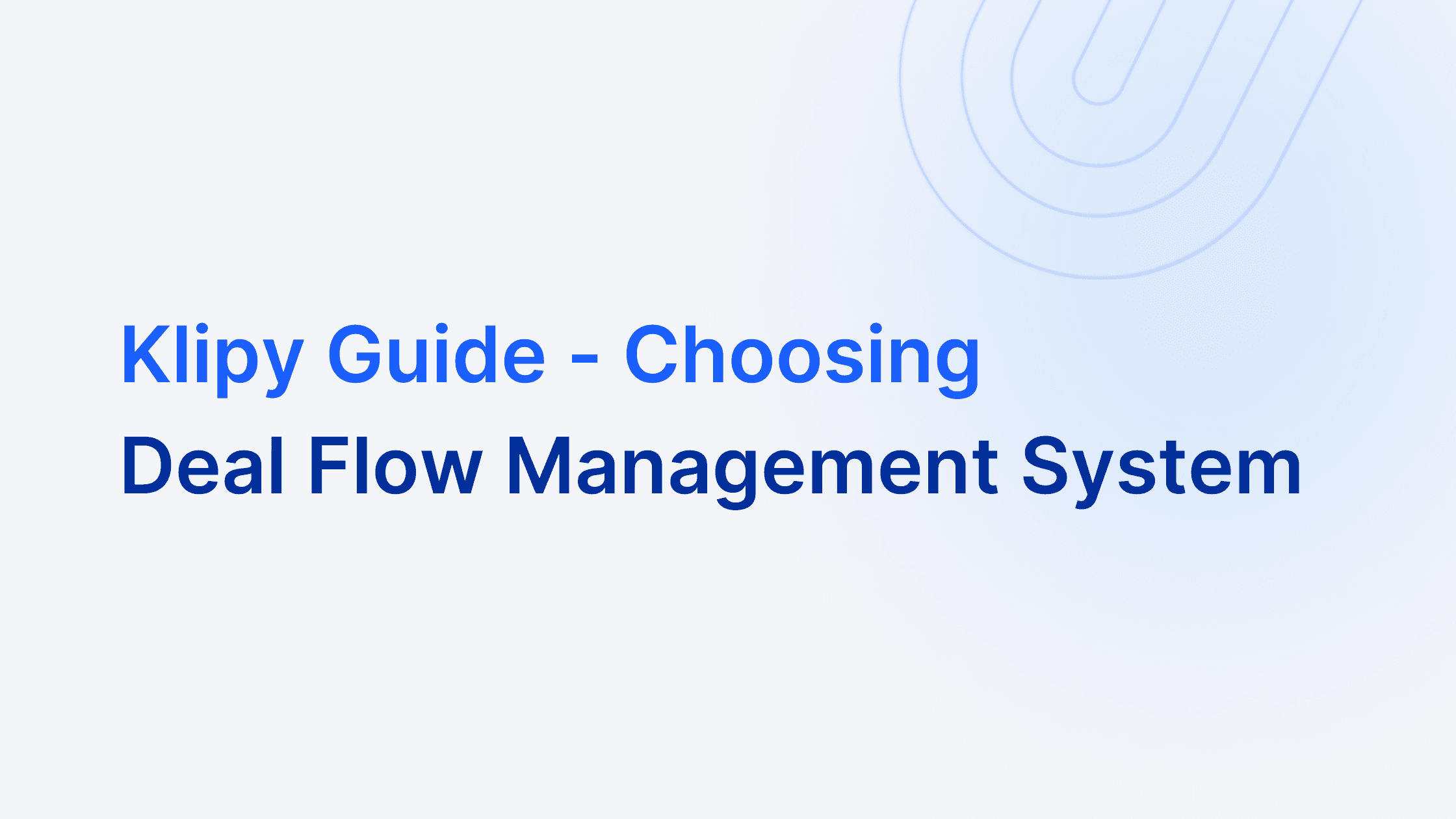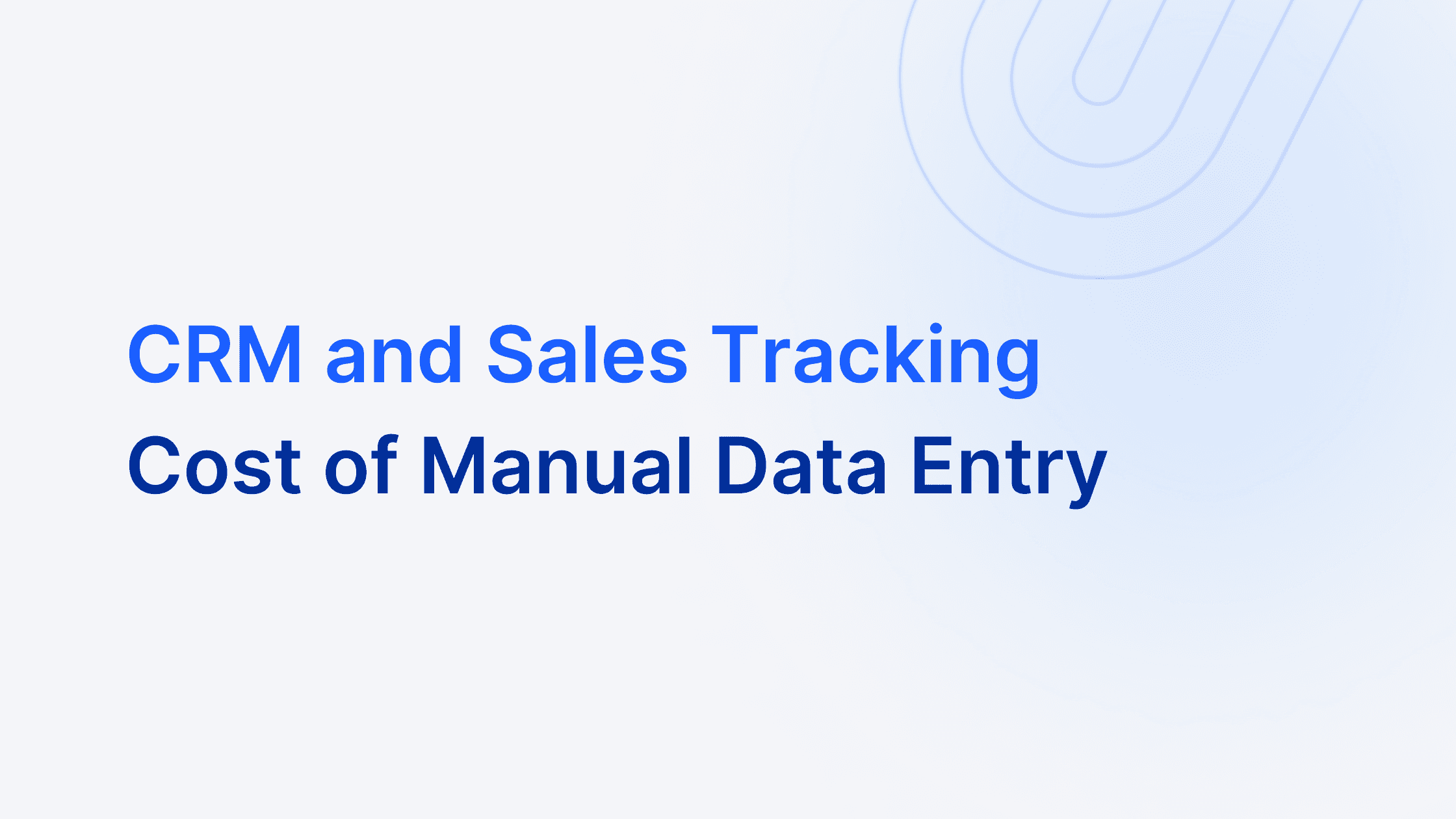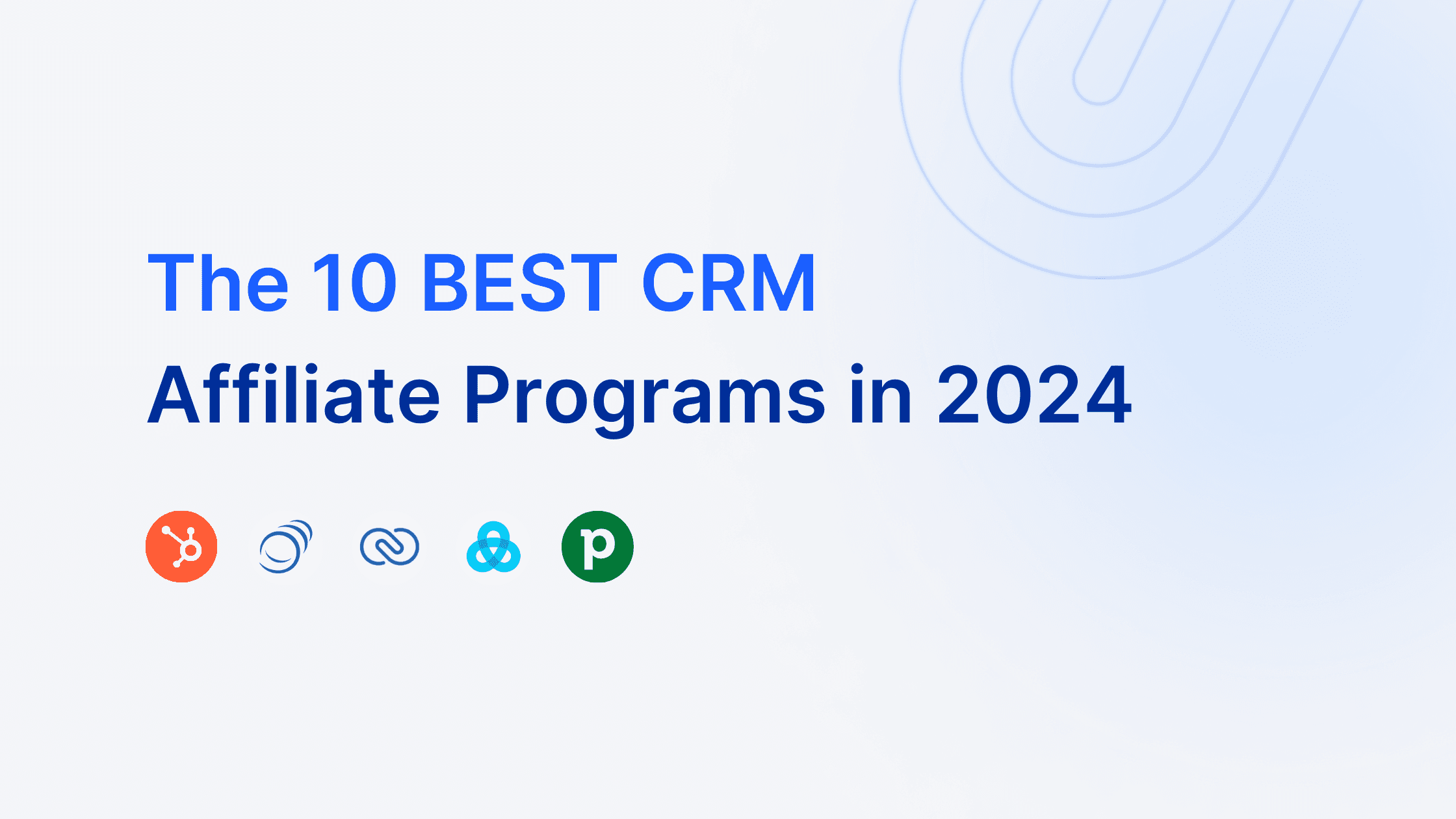CRM
The Definitive Guide to Understanding CRM
Explore the essentials of CRM, the tool that enhances customer relationships and streamlines business operations. Learn why CRM is vital for growth.
What Is CRM?
CRM stands for Customer Relationship Management. It's a system that manages a company's interactions with current and potential customers. The goal? To strengthen relationships, streamline processes, and grow the business.
CRM is your business's essential toolkit for customer management. It combines practices, strategies, and technologies to manage and analyze customer interactions and data throughout the customer lifecycle. This allows your business to:
Improve Relationships: Track every customer interaction for personalized service.
Streamline Processes: Automate routine tasks, freeing your team to focus on what matters.
Grow the Business: Use insights and data to make informed decisions that drive growth.
CRM helps you understand your customers better and make smarter business decisions. Whether you're a solopreneur, a consultancy, or a growing team, our CRM system organizes customer data, enhances communication, and automates routine tasks. It improves customer management and sales processes significantly.
CRM creates meaningful connections with your customers, beyond just managing data. This makes CRM essential for business success.
Importance of CRM for Businesses
Key Benefits of Using CRM
CRM systems bring a host of benefits to any business. They provide a clear, unified customer profile, streamlining the way you manage relationships. The integration helps reduce administrative work, freeing up your team to focus on more strategic tasks.
You get to streamline processes, making everything more efficient. With CRM, collaboration within your team becomes seamless. Everyone can access the same up-to-date information, enhancing productivity and ensuring nothing slips through the cracks.
Here's why a CRM is crucial for your business:
Unified Customer Profile: Gather all customer information in a single view, making it easier to manage and understand customer needs.
Automation: From marketing to sales and customer service, automate repetitive tasks to save time and increase efficiency.
Enhanced Collaboration: Ensure team members are on the same page with centralized data access, promoting better teamwork.
Integrating CRM with AI takes productivity to another level. AI-generated insights provide valuable data, which helps in making informed decisions. This integration also makes employees more productive by automating mundane tasks and highlighting important trends and patterns.
A good CRM also offers marketing automation, sales force automation, and contact center automation. These features help your team focus on what they do best—building relationships and driving growth. By automating these areas, businesses can enhance their service delivery and ensure customer satisfaction consistently.
For small businesses, understanding the significance of simple CRM systems is crucial. These systems help in organizing customer data, enhancing communication, and automating routine tasks to drive growth. Learn more about how simple CRMs can resolve specific challenges faced by small businesses and the timing for CRM implementation by exploring the benefits of simple CRMs for small businesses.
Overall, the right CRM system supports growth by organizing customer data, streamlining operations, and facilitating better decision-making. It’s a tool that aligns with your business goals and helps achieve them efficiently.
How CRM Systems Work
CRM systems are all about tracking interactions with prospects and customers. They keep tabs on sales calls, customer service chats, and marketing emails. Everything's logged, making customer data easy to access. This single source of truth means everyone at your company can deliver top-notch service.
When you use a CRM, you get a complete view of your customers. It gathers data from various channels—like emails, phone calls, and social media interactions. This data includes personal details, purchase history, buying preferences, and any concerns the customer might have shared.
The magic happens when all this information is compiled in one place. Your customer-facing team can pull up detailed profiles and tailor their interactions. It’s like having a customer’s entire story at your fingertips.
With a CRM system:
Track Sales Calls: Log every call and its outcome for future reference.
Monitor Customer Service Interactions: Keep records of every support ticket and resolution.
Organize Marketing Emails: See which emails were sent and how customers responded.
All this data helps you understand your customers better. It allows your team to personalize communication and improve customer satisfaction. They can make informed decisions quickly, driving better interactions and building stronger relationships. For more insights on how CRM systems can tackle these challenges, check out why small businesses are often compelled to adopt CRM systems due to scattered customer data and inefficient communication.
Improving Customer Service with CRM
CRM systems are game-changers for boosting customer service. They bring everything together, creating a unified customer profile. This means service agents have all the info they need right at their fingertips. Quick, informed answers? You bet.
Every interaction, service request, and customer preference is stored. This storage allows for better tracking and more personalized service. When a customer contacts your team, they won't feel like they're starting from scratch each time.
CRM systems also automate customer support tasks. This automation reduces response times and boosts the quality of service. Your team spends less time on repetitive tasks and more time focusing on what matters—helping the customer.
Here's how CRM systems enhance customer service:
Unified Profiles: All customer data in one place for seamless service.
Automated Tasks: Speeds up responses and improves service quality.
Personalized Service: Tailors interactions based on stored preferences.
Klipy's CRM takes it a step further with AI-generated insights from emails, calls, and events. This keeps everyone in the loop without the hassle of combing through long threads. For more details on how Klipy can serve as a single source of truth for your business, check out our comprehensive CRM solution. It's about making service as smooth and efficient as possible. That's the power of CRM in customer service.
Types of CRM Technology
CRM technology comes in several flavors, each with its own perks and purposes. Understanding these types can help you pick what fits best for your business needs.
Cloud-based CRM is popular for its flexibility and ease of access. You can reach it from anywhere with an internet connection, making it perfect for teams that work remotely or on the go. Updates happen automatically, so you're always using the latest version without any hassle.
On-premises CRM is all about control and customization. You install this CRM on your own servers, giving you more say over how it's set up and maintained. It's a solid choice for businesses with specific data security needs or those wanting total control over their CRM environment.
Open-source CRM offers something unique: the ability to modify the software at no cost. It's ideal for businesses with tech-savvy teams that want to tailor the CRM to their exact specifications. Just keep in mind, you'll need the expertise to handle these modifications.
Mobile CRM caters to teams needing data access on the go, like field employees. With this type, important customer information is always at their fingertips, no matter where they are.
For a more detailed comparison of CRM options suitable for small businesses, you can refer to our article on CRM review and comparison for small business owners. This resource dives into the benefits and challenges of various CRM systems, helping you make an informed decision.
Here's a quick rundown:
Cloud-based CRM: Flexibility and easy access from anywhere.
On-premises CRM: Control and customization on your own servers.
Open-source CRM: Free modifications with the right expertise.
Mobile CRM: Perfect for data access while on the move.
Each type suits different business needs and scenarios. Understanding these options helps you choose the right CRM setup for your team.
Integrating CRM with Other Business Tools
Integrating a CRM with other business tools boosts efficiency and accuracy. CRM systems link with apps like document signing, accounting, and surveys. This connection gives you a complete view of your customer.
When your CRM connects to your accounting software, you see financial data next to customer interactions. This helps you understand each customer's value and create personalized communications. Linking with document signing tools speeds up contract processes, making deals faster.
Document Signing: Sync contracts and agreements in your CRM.
Accounting Software: View financial data alongside customer interactions for a full picture.
Surveys: Collect and store customer feedback in one place for better analysis.
CRM systems also connect with call centers and enterprise resource planning systems. This ensures centralized data access. It improves workflows by reducing platform switching. All information is easily accessible, boosting efficiency and cutting errors.
These integrations turn your CRM into a hub for business operations, going beyond customer data management. This connected approach saves time, improves data accuracy, and increases productivity. For more insights on essential CRM functionalities that can enhance productivity and streamline operations, especially for startup founders, you might find our guide on 5 Must-Have CRM Features for Startup Founders in 2024 particularly useful.
CRM Costs Explained
CRM systems come with various costs, depending on business size and product needs. For small businesses, costs can start with affordable subscription plans, while larger enterprises might require more comprehensive solutions.
Cloud-based CRM systems usually charge monthly or yearly fees. These plans often include updates and maintenance, making them a popular choice for businesses seeking flexibility. On-premises CRM, however, involves a one-time investment in software and hardware, which can be significant.
Several factors influence CRM pricing:
Features Offered: More advanced features can drive up costs.
Customization Needs: Tailoring the CRM to specific business processes may require additional investment.
Number of Users: Costs often scale with the number of users, impacting the total price.
Klipy offers flexible pricing options to suit different business needs. With features like one-click email integration and AI-enhanced insights, businesses can choose a plan that aligns with their requirements. Our CRM system is designed to provide value while keeping costs manageable, ensuring businesses can effectively manage customer relationships without breaking the bank. For more insights on cost-effective CRM solutions, you can explore our article on the best free CRM software for small businesses in 2024.
Enhancing Sales and Marketing with CRM
CRM software supercharges sales and marketing. It gives you a clear view of every lead and opportunity. You'll see the path from first contact to closed deal. This visibility helps you manage your pipeline and focus your efforts where they matter most.
With CRM, you can automate sales emails and craft marketing messages that resonate. AI-powered personalization makes each customer feel valued. This personal touch builds stronger relationships and drives more sales.
CRM's marketing automation tools boost your efforts throughout the customer lifecycle. You can send the right message at the right time, nurturing leads into customers. For small businesses weighing CRM options, a detailed comparison between FreshSales and HubSpot can provide valuable insights into which solution might be best for your needs.
Sales force automation streamlines your process. It tracks customer interactions and automates tasks across the sales cycle. You'll work more efficiently and never miss a beat.
Here's how CRM enhances your sales and marketing:
Lead Visibility: See every opportunity and track its progress.
Automated Emails: Save time on routine communications.
Personalized Interactions: Use AI to tailor customer engagement.
Marketing Automation: Send targeted messages at key lifecycle stages.
Sales Automation: Streamline sales processes for better efficiency.
These features let you focus on what truly matters: building relationships and closing deals. CRM empowers your sales and marketing teams to work smarter, not harder. For startups, exploring the best free CRM software options for 2024 can help in finding cost-effective solutions that offer essential features like contact management and sales pipeline tracking.
Key Features of a CRM System
A CRM system packs features that simplify business processes and boost teamwork. It offers a unified customer profile, putting all customer info in one place for easy access. This keeps customer interactions consistent and professional.
Real-time updates keep your data fresh, helping you make quick, informed decisions. AI integration in CRM systems automates routine tasks and provides insights, letting your team focus on strategy.
Marketing automation is a key feature. It automates campaigns and tracks their impact, saving time and expanding reach. Sales force automation manages leads and sales pipelines efficiently, helping you catch every sales opportunity.
Common CRM components include:
Contact Management: Organize and access all customer details easily.
Interdepartmental Teamwork: Enable collaboration across teams with shared customer data. For more on how CRM systems enhance team dynamics, check out Klipy's collaborative CRM features.
Sales Management: Track deals and sales activities in one place.
Service Optimization: Improve customer service with support request management tools.
Reporting functions give insights into performance, helping you spot trends and refine strategies. Integrations with other systems are vital. They ensure your CRM works smoothly with tools like email and accounting software.
GDPR compliance protects customer data and builds trust. A CRM system ensures your data handling meets these standards, safeguarding your business and customers.
Frequently Asked Questions About CRM
CRM can seem complex, but it's straightforward once you get the basics. Here are some common questions people have about CRM systems:
What is CRM used for?
CRM systems help businesses manage interactions with customers and prospects. They keep track of every conversation, email, and meeting, making it easy to stay organized and provide excellent service.
Who can benefit from a CRM?
Any business that interacts with customers can benefit from a CRM. It's especially useful for solopreneurs, consultancies, and growing teams who need to manage increasing data and interactions effectively.
How does CRM improve sales?
CRM improves sales by tracking leads and opportunities. It provides insights into customer behavior, enabling personalized communication. This helps sales teams focus on converting leads into customers.
Does a CRM system integrate with other tools?
Yes, most CRM systems can integrate with other business tools. This includes email platforms, accounting software, and marketing applications. Integration streamlines operations and boosts efficiency.
What makes Klipy's CRM unique?
Our CRM stands out with its one-click email integration and AI-enhanced features. This means all sales data is automatically updated, saving time and reducing errors. For small and medium businesses, understanding the importance of CRM systems is crucial for growth and customer management, as discussed in our dedicated blog for SMBs.
Is CRM easy to use?
Yes, CRM systems are designed to be user-friendly. They often include intuitive dashboards and features that simplify data management and enhance productivity.
Can CRM be customized?
Many CRM systems offer customization options. This allows businesses to tailor the system to their specific needs, ensuring it supports their unique processes and goals.
Understanding these FAQs can help you see how a CRM system can support your business goals. It's a tool that streamlines operations and enhances customer management, making it an essential part of any business strategy.
Wrapping Up CRM Essentials
Grasping CRM essentials means understanding its impact on your business relationships and operations. CRM systems enrich your customer connections and elevate service quality. They offer clear benefits like streamlined processes, improved data management, and enhanced sales and marketing.
Key benefits stand out. CRM systems improve customer service by organizing interactions and automating tasks. They integrate with other tools, creating a unified business ecosystem. The cost varies, but the value it brings in efficiency and growth is undeniable.
Different CRM technologies offer solutions tailored to diverse needs. Cloud-based options provide flexibility, while on-premises systems offer control. Open-source CRMs allow customization, and mobile CRMs offer on-the-go access.
CRM improves sales and marketing by giving visibility into leads and opportunities. Features like marketing and sales automation enhance communication and efficiency. Essential features to consider include integration capabilities, automation, and ease of use.
When selecting a CRM, consider your business’s specific needs and challenges. Take advantage of free trials to explore different systems. Finding the right fit ensures you harness the full potential of CRM, supporting your business’s growth and success.
More from the blog








